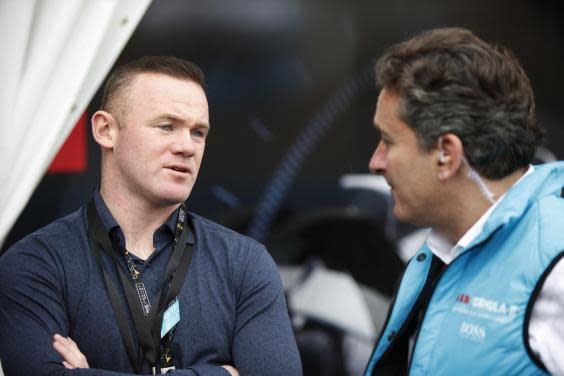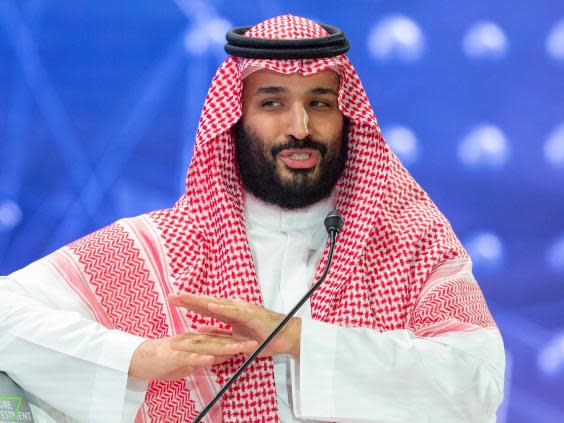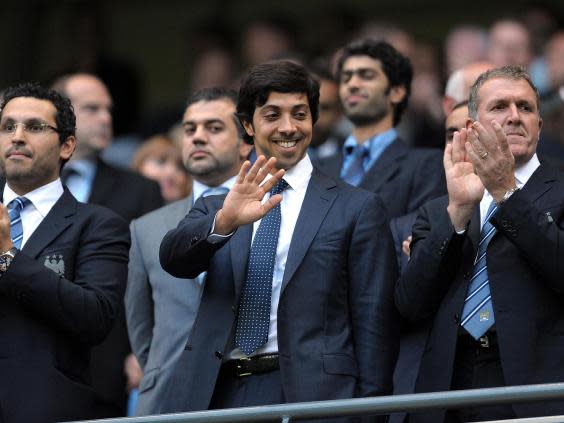Manchester United takeover: Saudi Arabia denying an interest fits with their current policy on sport - but that policy might be evolving
Monday morning brought a heavy dousing of cold water to a story that had got Manchester United fans hot under the collar, though it feels like a tale that has some distance left to run.
From the frying pan of the Glazer family's controversial ownership into the potential fire being taken over by Saudi Arabia's crown prince, Mohammed bin Salman, a buyout of the world's biggest football club would have been monumental not just in sporting terms but also as a landmark geopolitical story that would almost certainly have spawned protests way beyond the green and gold scarves of the early Glazer years.
By way of a brief recap, Saudi media minister Turki Al-Shabanah put distance between the kingdom and speculation surrounding a takeover of the Old Trafford club with a few choice tweets in the early hours of Monday.
“Reports claiming that HRH the Crown Prince Mohammed Bin Salman intends on buying Man United are completely false,” Al-Shabanah tweeted from a verified account linked to his position in government. It would appear a fairly formal denial, though Saudi Arabia doesn't have the best record in those recently, having also denied carrying out the murder of journalist Jamal Kashoggi until all the incontrovertible evidence piled up, resulting in the blaming of 'rogue elements' for a torture, murder and suspected dismemberment that is believed to have taken place within the Saudi consulate itself.
Al-Shabanah tweeted that United had held a meeting with Saudi’s sovereign wealth fund “to discuss sponsorship opportunity" but no deal materialised. So there was, at the very least, a small fire from which this smoke emerged, and even though there are those who doubt the substance of any Saudi denial, it must be acknowledged that buying out a Premier League club doesn't necessarily fit with the kingdom's policy on sporting investment.
Indeed, their strategy over the past decade has focused on strengthening domestic sport while neighbours went all-out overseas.
Investment has increased in Saudi Arabia's football league and leading clubs, who now draw significant crowds, have been privatised with a hope they can one day compete with Europe's finest - perhaps in a lucrative, Saudi-funded World League environment. As in Qatar, a rival state in the region, Saudi Arabia has built a sports and entertainment city which represents one of the largest dedicated leisure and entertainment developments of its type in the world. It is hoped that this city, Qiddiya, will be able to host a number of sporting events in the future, with existing Saudi sports policy more centred around bringing major sporting competitions to the kingdom rather than investing billions in a Premier League football club as things stand.
In December, Formula E hosted a race in Ad Diriyah. As one of the world's most eco-friendly and fastest-growing sports, it was a coup for Saudi Arabia and Wayne Rooney was among the celebrities and influencers paid significant sums to visit the kingdom for the race, drawing attention to their hosting of the event. WWE has signed a long-term contract to host events in Saudi as well, while the World Boxing Super Series recently touched down in Jeddah with Callum Smith defeating George Groves in a big-money, all-English title fight. The Italian Super Cup between AC Milan and Juventus, two of the world's best-known football clubs, also took place in Jeddah. More events will almost certainly follow.

It is those moves which have summed up Saudi Arabia's approach to investing in sport, rather than making global ripples with a takeover of one of Europe's biggest football clubs or - just imagine - an American major league sports team.
That is not to say that it couldn't happen in the future, and wealthy private individuals from Saudi Arabia have explored the possibility of buying Premier League clubs, most notably kicking the tyres on Newcastle United last year.
One source who has worked in the realm of Saudi sports policy did fire a warning that "when MBS [Mohammed bin Salman] is involved, all bets are off."
And that speaks to the shifting dynamics of power in the oil-rich kingdom.

It may not be policy now, but that can change in a whim these days. The crown prince has unloaded enormous money on foreign assets in the shape of property and is not afraid to invest money abroad, meaning any potential deal for a football club would simply be a change of tack, "an evolution" of the existing policy, rather than crossing any red lines.
Notably, that change of tack is no longer out of the question now that power in Saudi Arabia has been swiftly centralised by bin Salman since 2017.
"Saudi is very complex politically in terms of power and for years after the Manchester City and Paris Saint-Germain takeovers happened the idea of a Saudi equivalent was far less likely," says Nicholas McGeehan, an academic and researcher on the Middle East.
"Saudi has always been a little bit behind, but that can be put down to the fact that power was very decentralised, though Mohammed bin Salman's internal power grab has somewhat fixed that, as it were.
"A smaller ruling elite in Abu Dhabi and Qatar means this has always been a possibility for them. MBS's rise to power could - potentially - change that."

While Manchester City remain United's hated crosstown rivals, McGeehan believes that the way Abu Dhabi have made the Eastlands club into an impactful global brand will not have gone unnoticed by Saudi Arabia's crown prince, who counts on a close relationship with the crown prince of Abu Dhabi.
"Mohammed bin Zayed has been something of a mentor to him," McGeehan adds. "So it wouldn't surprise me if he had looked into Abu Dhabi's success with Manchester City and wondered if he could do something similar, particularly with the reputational aspect to it.
"Obviously Saudi Arabia has far greater reputational problems right now."
And therein lies the crux of the matter. While the interest in a takeover has been denied and the concept of a buyout doesn't fit with current sports investment policy in the kingdom, the changing power dynamics in Saudi Arabia and Mohammed bin Salman's influence and relationships mean that this is not a proposition that can be completely ruled out.
How happy United fans would be at the prospect of a Saudi takeover occurring is another argument entirely, and goes far beyond the moving pieces of Middle Eastern geopolitics. It might, however, be a conversation that those supporters need to have with themselves at some point, just in case the smoke from the existing fire billows further into the sky. For some, those fumes will always be too toxic.
